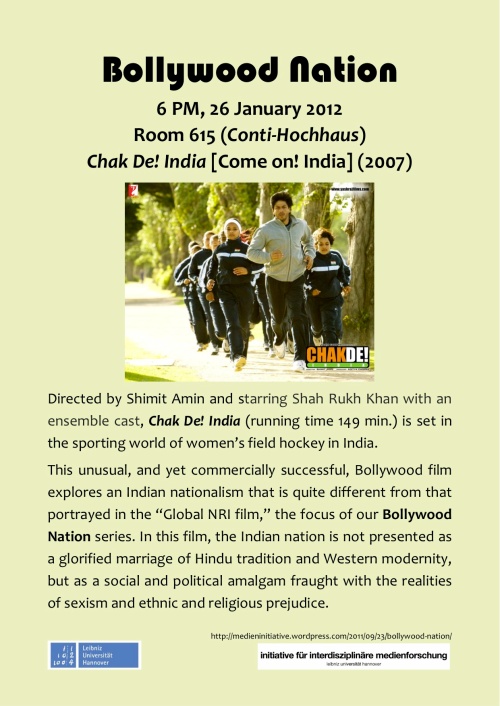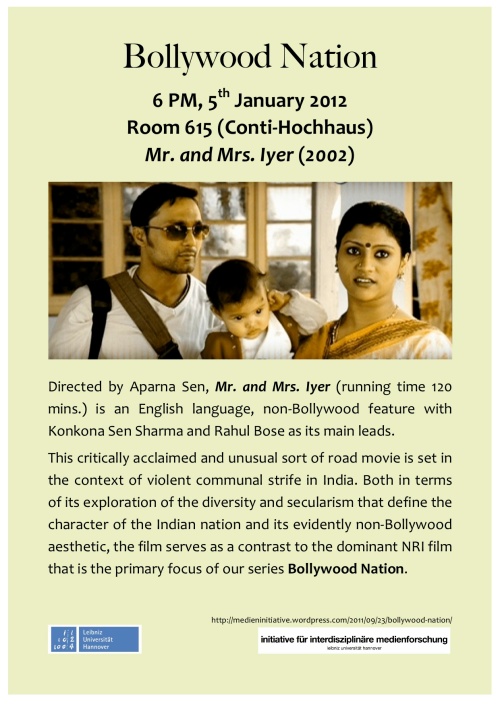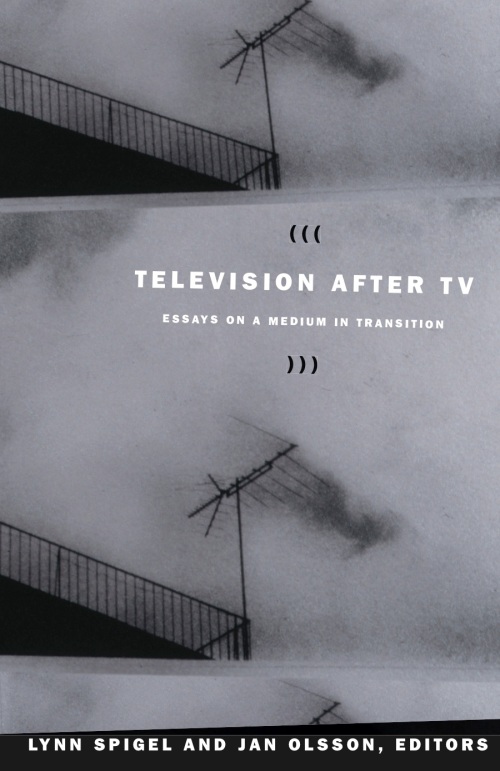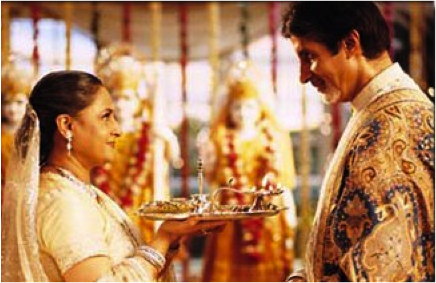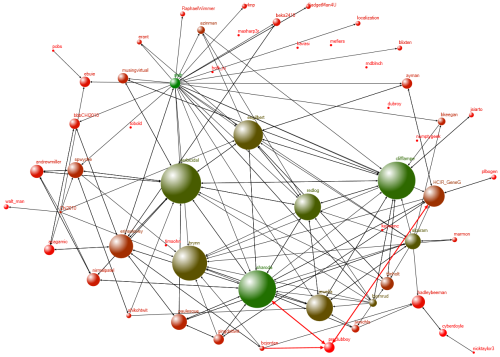On Thursday, January 26, 2012, we will be screening the fifth and final film in our Bollywood Nation series: Chak De! India [Come on! India] (and not, as previously announced, Kabhi Khushi Kabhie Gham…). As usual, the screening will begin at 6:00 PM (room 615 in the Conti-Hochhaus). More information about the film can be found on imdb.com.
Tag: media initiative
Artificial Life and Uncanny Animation in Final Fantasy: The Spirits Within
The next meeting of the Film & TV Reading Group will take place at 6:00 pm (s.t.) on January 18, 2012 (in room 609 of the Conti-Hochhaus). Thomas Habedank will be moderating the session, for which he has chosen a very interesting article by Livia Monnet entitled “A-Life and the Uncanny in Final Fantasy: The Spirits Within” (from Science Fiction Studies 31.1 (2004), 97-121).
While focusing on the 2001 film Final Fantasy: The Spirits Within (see imdb for more info), in certain respects the paper’s topic picks up on a facet of our discussion of Romero’s zombie films–the question of the uncanny. The paper links this question to a certain historical moment and the media transition from analog to digital forms, to questions of adaptations between film and videogames, and to broader questions of “animation” as both a specific form of film and a basic impulse of film in general.
No prior familiarity with the Final Fantasy franchise or the film is required in order to participate. We will watch some relevant clips to facilitate discussion, and the topic should be conducive to discussion along the lines of a wide variety of interests in moving-picture media.
As always, new participants are more than welcome to join us. For more information about the Film & TV Reading Group, feel free to contact me by e-mail (see the “Contact” page above for the address).
Bollywood Nation: Mr. and Mrs. Iyer
On Thursday, January 5, 2012, we will be screening the fourth film in our Bollywood Nation series: Mr. and Mrs. Iyer. As usual, the screening will begin at 6:00 PM (room 615 in the Conti-Hochhaus). As indicated on our poster above, the 2002 film serves in several respects as a contrast to the other films in our series. More information about the film can be found on imdb.com.
Nightmare Before Christmas
[youtube http://www.youtube.com/watch?v=5gUKvmOEGCU]
On Wednesday, December 21, 2011 (6pm, room 609 in the Conti-Hochhaus), the Film & TV Reading Group will meet to discuss Steven Shaviro’s “Contagious Allegories: George Romero,” a chapter from his now classic book The Cinematic Body. In the spirit of the holiday season, though, and in light of the fitting subject matter, we’ve decided to make it into a somewhat more festive event than usual: we’ll start off by screening the first of Romero’s zombie movies, Night of the Living Dead (1968). Glühwein and zombies: it just doesn’t get much more Christmas-y than that!
Film & TV Reading Group: Lynn Spigel on TV, Housewives, and MoMA
The Film & TV Reading Group at the Leibniz Universität Hannover will be meeting this Wednesday, November 30, 2011, to discuss Lynn Spigel‘s “Television, The Housewife, and the Museum of Modern Art” (in Television after TV: Essays on a Medium in Transition, ed. Lynn Spigel and Jan Olsson; Durham & London: Duke UP, 2004; pp. 349-385).
Lynn Spigel will be one of our keynote speakers at “Cultural Distinctions Remediated: Beyond the High, the Low, and the Middle,” December 15-17, 2011. Her talk is entitled “Designer TV: Television and the Taste for Modernism in Mid-Century America” (click for abstract).
The reading group will meet at 6:00 pm in room 609 (in the “Conti-Hochhaus” at Königsworther Platz 1). New members are always welcome to join us!
Bollywood Nation: Dilwale Dulhania Le Jayenge
On Thursday, November 24, 2011, we will be screening the second film in our Bollywood Nation series: Dilwale Dulhania Le Jayenge [The Big Hearted Will Take the Bride]. Please note that this and subsequent screenings in the series are now scheduled to begin at 6:00 PM (room 615 in the Conti-Hochhaus).
The film, directed by Aditya Chopra and released in 1995, was the first successful new global NRI film, considered a classic of its kind. The short description at imdb.com indicates the global scope of the conflicts, concerns, and identities that inform the film:
“A young man and woman – both of Indian-descent, but born and raised in England – fall in love during a trip to Switzerland. However, the girl’s traditional father takes her back to India to fulfill a betrothal promise.”
Bollywood Nation
The Initiative for Interdisciplinary Media Research and Jatin Wagle (in conjunction with his seminar “Long-Distance Hindu Nationalism and the Changing Figure of the Expatriate Indian in Contemporary Bollywood Cinema”) are proud to present a series of screenings this winter semester:
Bollywood Nation
From the first silent feature made in 1913, one of the many appeals of commercial Hindi cinema has been its persistent and multifarious staging of the Indian nationalism. It has been argued that the Bombay film constitutes a significant site for the popular negotiation of the Indian nation and that its history could even be told as an eccentric allegory of the checkered, postcolonial career of the Indian nation-state. In the 1960s and 1970s, for instance, when the “brain drain” paradigm ruled the official and dominant view of emigration in India, in the Hindi films the emigrant was portrayed as a sort of deficient Indian. His Indianness corrupted by Western decadence, he was someone who needed to be reformed, if not reviled. But, all this changed after the processes of economic liberalization were set in motion in 1991 and the Indian state started wooing the non-resident Indian (NRI). The new Bollywood NRI is not just an exemplary Indian, but even excessively so. In other words, he is more Indian than Indian, because he is both ultramodern and hypertraditional; he has a hugely successful career in the West, but his home is still an improbable oasis of Indian values and religiosity. Thus, the new Bollywood NRI embodies a deterritorialized cultural nationalism which utilizes the rhetoric of India’s alleged emergence as a global superpower. But, with the unprecedented global recognition and popularity of Bollywood, the rise of the new NRI has also been accompanied by an upsurge of Hindu nationalism within India and in the Indian diaspora. Does the changed socio-economic context and cinematic form account for Bollywood’s growing global appeal?
We plan to engage with these and other related issues in our series “Bollywood Nation” with five films to be screened between 27.10.2011 and 26.01.2012 at 18:00 in room no. 615.
27.10.2011 – Swades: We, the People [Homeland] (Dir. Ashutosh Gowariker, 2004, 187 mins.): A late renegotiation of the “brain drain” paradigm and could serve as a contrast to the new global NRI films. (more here)
24.11.2011 – Dilwale Dulhania Le Jayenge [The Big Hearted Will Take the Bride] (Dir. Aditya Chopra, 1995, 192 mins.): First successful new global NRI film, considered a classic of its kind. (more here)
08.12.2011 – Pardes [Foreign Land] (Dir. Subhash Ghai, 1997, 195 mins.): Another commercial success, both in India and abroad.
05.01.2012 – Mr. and Mrs. Iyer (Dir. Aparna Sen, 2002, 120 mins.): An English language, Indian film and not a Bollywood production; offers a contrasting aesthetic and another kind of negotiation with the composite idea of the Indian nation.
26.01.2012 – Kabhi Khushi Kabhie Gham… [Sometimes Happiness, Sometimes Sadness] (Dir. Karan Johar 2001, 210 mins.): One of the biggest commercial hits outside of India and the first Bollywood film to be released simultaneously in Germany, under the title In guten wie in schweren Tagen.
Connections
Es gibt viele Möglichkeiten, über die Initiative für interdisziplinäre Medienforschung informiert zu bleiben. Sie können unsere Google-Kalender (http://medieninitiative.wordpress.com/calendar/) abonnieren: XML, iCal,HTML, um auf dem Laufenden über medienrelevante Events und Aktivitäten der Initiative zu bleiben. Außerdem gibt es ein RSS feed für diesen Blog sowie die Möglichkeit, neue Posts per E-Mail zu abonnieren (“Email Subscription” rechts). Und nun können Sie uns auch auf Twitter folgen: http://twitter.com/#!/medieninitiativ!
Upcoming Events
Auf der rechten Seite gibt es eine automatisch aktualisierte Liste von “Upcoming Events,” die für die Medieninitiative oder für Medieninteressierten im Allgemeinen relevant sind. Gerne nehmen wir Events (Vorträge, Tagungen, CFPs, Ausstellungen, Vorführungen usw.) in unserem Kalender auf. Kontaktadresse finden Sie auf unsere “About”-Seite (oben).
